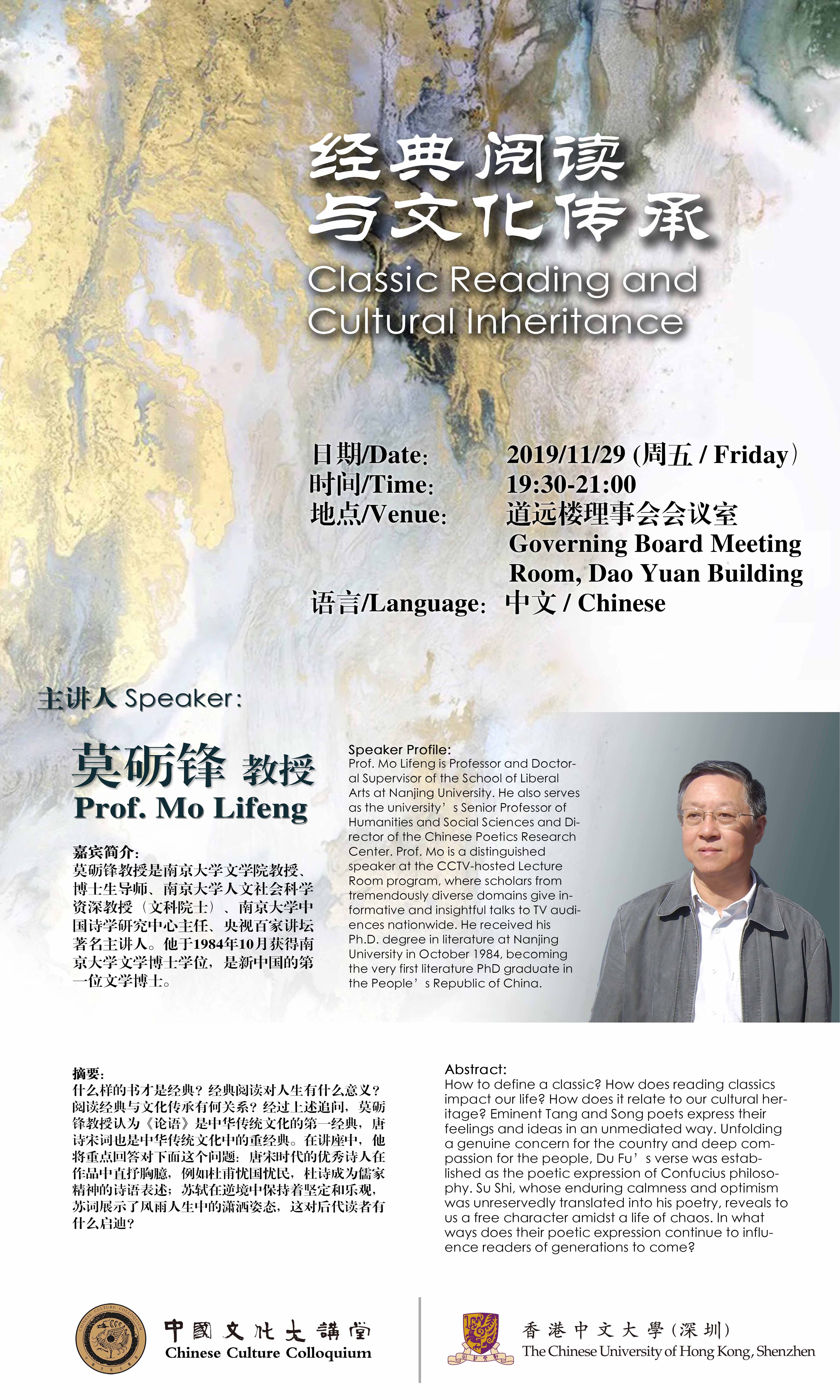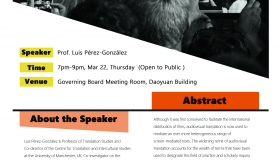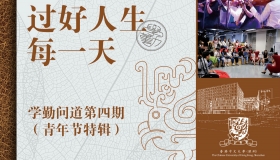Chinese Culture Colloquium|Reading Classic and Cultural Inheritance
Topic: Reading Classic and Cultural Inheritance
Speaker: Prof. Mo Lifeng
Date: Friday, November 29, 2019
Time: 19:30pm-21:00pm
Venue: Governing Board Meeting Room, Dao Yuan Building
Language: Chinese
Speaker’s Profile:
Prof. Mo Lifeng is Professor and Doctoral Supervisor of the School of Liberal Arts at Nanjing University. He also serves as the university’s Senior Professor of Humanities and Social Sciences and Director of the Chinese Poetics Research Center. Prof. Mo is a distinguished speaker at the CCTV-hosted Lecture Room program, where scholars from tremendously diverse domains give informative and insightful talks to TV audiences nationwide. He received his Ph.D. degree in literature at Nanjing University in October 1984, becoming the very first literature PhD graduate in the People’s Republic of China.
Professor Mo used to serve as Dean of the Department of Chinese Language and Literature at Nanjing University, a member of Social Sciences Committee of the Ministry of Education (MOE), a member of the MOE Liberal Arts Education Steering Committee, a member of the MOE Chinese Language Teaching Steering Committee, and a member of the Standing Council of the Tang Literature Association. Prof. Mo’s publications include five academic monographs and over one hundred papers.
Abstract:
How to define a classic? How does reading classics impact our life? How does it relate to our cultural heritage? In the eyes of Prof. Mo Lifeng, The Analects of Confucius is the primary classic of traditional Chinese culture, while Tang poetry and Song poetry are of pivotal significance among the multitude of classics. In his talk, Prof. Mo will address the following topic: how does the works of celebrated Tang and Song poets inspire readers of future generations? Eminent Tang and Song poets express their feelings and ideas in an unmediated way. Unfolding a genuine concern for the country and deep compassion for the people, Du Fu’s verse was established as the poetic expression of Confucius philosophy. Su Shi, whose enduring calmness and optimism was unreservedly translated into his poetry, reveals to us a free character amidst a life of chaos. In what ways does their poetic expression continue to influence readers of generations to come?





